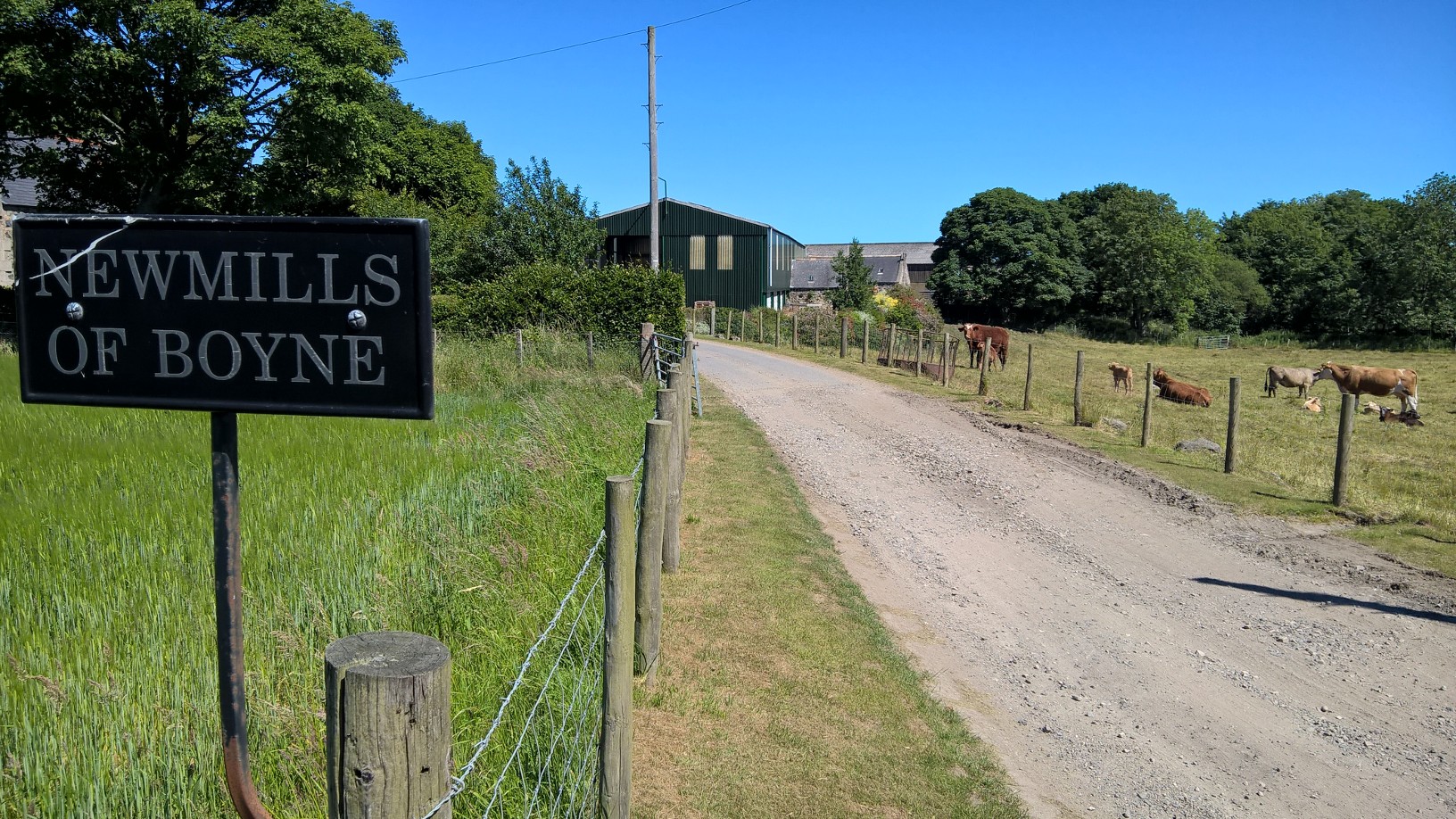An Introduction to Newmills of Boyne
The farm of Newmills of Boyne extends to approximately 405 hectares of land in the county of Banffshire, close to the village of Cornhill. The business is made up of three separate but nearby farms – Tillynaught, Drakemyre and Newmills of Boyne itself. The main crop grown on the farm is spring barley which is aimed at the premium malting market. A small area of spring oats is also grown, while winter wheat has been grown previously.
The farm also lets out land each year for growing potatoes, shopping swedes, and carrots. Areas of the farm unsuitable for cropping are sown to grass which is utilised by a small suckler cow herd, producing store cattle. The farm also maintains a pig finishing enterprise, which is a valuable source of farmyard manure for the business. Newmills of Boyne is also currently participating in a large Agri-Environment Climate Scheme plan which includes the creation and maintenance of habitats such as water margins, grass strips, wild bird seed, green manures etc.
Read more about our host farm at: Case Study: Newmills of Boyne
With the farm being made up of separate farm units, there is a range of soil types and classifications on the farm. The soils range from grade 3.1 to grade 4.2, with the majority of the land classed as grade 3.2. The soils are a mixture of both the Strichen and Tarves soil association, with much of the area being classed as imperfectly drained.
With the farm growing a considerable acreage of potatoes and vegetables each year, the business is becoming increasingly concerned about the effect that these, and to a lesser degree the cereal enterprises, are having on the condition of the soil. The use of larger and heavier machines, often operating when weather conditions are poor, is a great concern to the business, with the effects of this often seen in succeeding crops. The business is keen to investigate ways to both minimise the risk of damage to its soils and also alleviate damage that has already occurred.
Event summaries
- Banffshire Soil & Nutrient Network - 1st Meeting: event summary
- Banffshire Soil & Nutrient Network - 2nd Meeting: Save money with effective nutrient budgeting event summary
- Banffshire Soil & Nutrient Network - Final meeting: Field Drainage event summary
Downloads
- Valuing Your Soils
- Practical Guide: Soil sampling I – How to take a soil sample
- Practical Guide: Soil sampling II – Benefits to your business
- Farmer’s guide to sourcing and using digestate and compost
- Technical Note (TN 720): Assessment for agricultural drainage requirement
- Technical Note (TN 728): Planning agricultural field drainage

Sign up to the FAS newsletter
Receive updates on news, events and publications from Scotland’s Farm Advisory Service
